- Home
- Patrick Robinson
Hunter Killer Page 17
Hunter Killer Read online
Page 17
The prostrate General shuddered at the thought. It could all go wrong, right here on his patch. And he could not tolerate that. No, the two Hamas bodyguards protecting the men in among the aircraft would take up position behind the wheels of the aircraft nearest the perimeter path. That way there was no possibility of their being seen, not in the dark, and they would be only fifty feet from the jeep as it passed.
Plainly, it would be slightly hairy for the two bodyguards operating five feet below a ticking time bomb in the aircraft’s engine. But these were professionals, and they would be safe on the guard stations until 0055, when it was time to run like hell, out under the wire with the twenty-four demo guys and into a big Saudi army truck, which had been hidden in the desert for three weeks, and would be on station to get them out and back to the “hide.”
Rashood intended to put his main wire cutter on duty at the fence at all times. Everyone would go in through a small gap in the fence—three feet by four, two at a time—at 2300, and then the fence would be put back lightly to avoid any detection by the occupants of passing jeeps.
The moment the last jeep had sped past, almost certainly traveling too quickly for proper observation, the wire man would complete cutting a huge gap, ten feet wide by twelve feet, so the getaway truck could practically back in.
Now, as General Rashood lay there deep in thought, the lights of the jeep lit up the northern perimeter road. Rashood watched the range of its beam every inch of the way, and as it roared past, all of his instincts were confirmed. The bodyguards would take up station on Thursday night behind the landing wheels of the F-15s.
Between now and then, the surveillance team would switch their attention to the military base, five miles away. In General Rashood’s mind, the airfield plan was complete. Now he had four days to refine his plan for the assault on the Khamis Mushayt army headquarters and the subsequent, vital surrender of that sprawling Saudi military base.
SAME DAY, 1830
DIR’AIYAH
Jacques Gamoudi was more and more impressed by the Crown Prince of Saudi Arabia. In the past few days, Prince Nasir had arranged for a succession of heavy-duty construction hardware to arrive at the outer walls of the ancient ruins. There were a couple of bulldozers, two cement mixers, various trucks with commercial names printed in Arabic, three vans, a pile of scaffolding, and, since yesterday morning, a crane that looked like it could lift the Hanging Gardens of Babylon.
There could be no doubt there was serious restoration work afoot out here on the edge of the desert. No doubt whatsoever why the main road out of Riyadh should be closed to any vehicles not driving straight through the area.
Shortly after dark, the white-robed Prince himself arrived for a conference with his forward commander from the French Pyrenees.
“Ah, Jacques!” he greeted the French colonel. “Come and talk to me out beyond the ruins. Walk with me to the temporary home of a true Bedouin.” He placed his arm around the shoulders of Jacques Gamoudi and together they walked out between the shattered buildings of the ancient city, continuing for perhaps a half-mile, where a three-sided tent had been erected, in front of which a gigantic Persian rug was spread upon the sand.
There were probably fifteen close friends in attendance, mostly political and religious advisors, and relatives of the prince. Colonel Gamoudi was at home among them. Above his regular combat gear, he now wore the customary red-and-white ghutra complete with the aghal, the double head cord traditionally worn on top of the Arabian headdress. He looked what he now was: a freedom fighter in the cause of Islamic fundamentalism.
Prince Nasir loved the desert. Those who knew him well talked often of his hatred of the gaudy palaces of the royal family. It was said that when he first saw his own new official residence, on the outskirts of Riyadh, he took one look at his sumptuously decorated bedroom and walked out of the door, marching along the upstairs corridor until he came to a small, almost bare, spare room. “I’m happier in here,” said the great-great-grandson of Ibn Saud.
And even now, many years later, the fifty-six-year-old Prince still preferred the old ways to the new. And still, almost every night, his servants drove him out to the desert, where they pitched the great three-sided tent and sat out under the stars and told their stories and discussed the politics of the day and the coming revolution.
Behind the tent, Jacques could see the cooks at work over modern barbecue grills; he could see the line of Range Rovers parked nearby; he could smell the roasting lamb; and he could see the great bowls of dates and the tall glasses of iced camel’s milk.
He sometimes had to give himself a reality check. And this was one of them, as he stood next to a royal family of Bedouins, robed, speaking quietly, close to the timeless oasis of Dir’aiyah. It was a scene that had scarcely changed for thousands of years. Except for the Range Rovers.
He stared at the tall, bearded Prince of the blood who accompanied him, and he watched the deference bestowed upon him—the gentle bowing of heads, the graceful sweep of the right arm from the forehead, the murmured “as salaam alaykum” from the robed brotherhood.
Four days from now he was to try and capture their country for them, with tanks, high explosive, gunfire, and mayhem. “Jésus,” thought Jacques. “What could I have done to deserve all this?”
But the Prince was bidding him to be seated. And he was placed next to Nasir on the vast rug set upon the hot sands. Above them the sky was clear and the temperature was rising by the day in the central desert, now four weeks on from the cold nights of mid-February. Tonight it was around eighty-one degrees. A pale moon was rising above the endless shifting dunes to the southeast, and the great revolutionaries of the Saudi royal family were relaxed.
Which was a sight more than Jacques Gamoudi was. He had spent his weeks here scheming and planning a simultaneous attack on several targets. His advisers had promised him that he would have an army to help him. But he had never seen that army. He knew there were immense stores of small arms and ammunition in the city, and he of course could see the heavy artillery he had around him, the armored vehicles and tanks.
When the time for the attack came, Le Chasseur would make no mistakes. So long as he was obeyed, he would take Riyadh. But where the hell was his army? That’s what he wanted to know. So far as he could tell, he had about twenty-four known fighting men, all Saudi, all al-Qaeda, most of whom he saw every day. The rest were a mystery.
And since he was probably going to take to the streets four days from now, he ventured to ask Prince Nasir whether he was absolutely sure the army would show up.
The Prince smiled while thoughtfully eating a couple of dates. “Jacques,” he said, “You will have an army of thousands, a great army that will sweep away everything in its path. And you will lead them, and explain to them the critical targets you have chosen. They will follow you and your chosen commanders, and you will be astounded at their bravery and determination.
“And remember, as you look around this very oasis, when Dir’aiyah fell to the army of the Ottoman Empire, in 1818, that was the only time in recorded history that the heartland of Saudi Arabia has been conquered by a foreign invader. And it’s never happened since. My people, in time, conquered this land, they took almost the entire Arab Peninsula. We are warriors and we understand, to a man, that you will lead us in our fight this week.”
Colonel Gamoudi actually thought that was all very well. And he was used to the flowery language of Arab military wannabes, which he privately thought the Prince was. He looked the Crown Prince of Saudi Arabia straight in the eye and said softly, in French, “Où qu’ils soit,” wherever they may be.
“Jacques,” said the Prince, “as you know, we have been stockpiling arms in the city for many weeks. We have vast caches of weapons stored in two houses in the Makkah Road. We have them on Al Mather Street and Al Malek Saud Street. Our main ammunition dumps are in great houses on Olaya Street. I’m mostly discussing AK-47s and hand grenades. But we have handheld rocket and grenade
launchers.”
“Sir,” said Colonel Gamoudi, “you will remember I had asked about the possibility of a suicide bomber aiming a plane straight at the main royal palace. I still think that’s the quickest and most effective way of spreading instant chaos. And striking at the heart of the rulers. Is that likely to happen?”
“So far we have only 230 volunteers for perhaps the greatest act of martyrdom in our history. They are men who understand they will be saving their families, their friends, and their country. They are all Wahaabis, which is the true Islamic teaching of our nation. Any one of them would be proud to answer the call of the three trumpets before crossing the bridge into paradise.”
Jacques brightened up considerably. “But, sir,” he said, “when will our great army begin to muster? Remember, I’ve never even seen it.”
“Jacques, I have observed you since you have been here, and I have observed the great importance you put upon communications. I have seen you demand the most expensive cell phones, radio, and satellite communications in the world…and I know you have briefed your commanding officers in the greatest detail.
“Each one of the men you speak to every day, the Saudi officers who will fight for us, the men who masterminded the acquisition of the arms, have an area of the city that they control. And many, many people understand that something is going to happen soon. On Wednesday night, after ten o’clock, the people will begin to gather their arms at our safe houses all over the city.
“Jacques, when you lead our convoy of tanks and armored vehicles down the main road and into the city, the people will come from every dwelling in Riyadh. They will come in the thousands, and they will flock behind your battle tanks, and they will march with you and your high command. And they will follow you into the mouth of hell.
“Oh yes, Jacques Gamoudi. They will come. They will most definitely come…Bismillah, in the name of God.”
Colonel Gamoudi brightened up some more. But he said, “You mean I will never see this army until it falls into line behind our artillery?”
“No one will ever see this army until it falls into line behind your artillery. We must both have faith.”
Right now Jacques understood why he was being paid a minimum of $10 million dollars to organize this people’s revolution. It was Sunday evening, and he knew that on Tuesday morning there would be $5 million paid into his private account in the Bank of Boston in the Champs-Elysées. He also knew his bonus check of yet another $5 million was being handed to Giselle at their home in the Pyrenees.
She would instantly call and inform the Bank of Boston that her check had arrived. At 2 P.M., here in Saudi Arabia, given the three-hour time difference from Paris, Jacques would dial the bank’s number on his cell phone and tell the operator, “Extension three-eight-seven.”
The reply would be simple: “Three-eight-six.” And he would cut the call off. Three-eight-six meant that his account showed a balance of $10 million, and they had heard from Madame Hooks that she now held an irrevocable cashier’s check for $5 million, to be deposited on the day King Nasir assumed power.
Either that, or he, Jacques Gamoudi, was on the next plane out of King Khalid for Paris, $5 million richer, and no further obligations. The money from the French government, he knew, would be there.
“Your Highness,” he said, “I have faith in you. And I have faith in the officers I have met here in Riyadh. I have been impressed by their planning, and their staff work. Each of them knows and understands our objectives. I am sure that on Friday morning they will confuse and demoralize our enemies, with their audacity and daring.”
Prince Nasir smiled. “Then your opening attack will follow the master plan you have worked on?” he asked. “The military vehicles will leave here in convoy the moment we hear that Khamis Mushayt has fallen? Two combat tanks and eight vehicles will head cross-country, straight to the airport, and you head into the city, where Colonel Bandar’s brigade will peel off and go directly for the principal television station?”
“Correct,” replied the French Colonel. “It is essential that we control the airport, and hold power over all public communications. Major Majeed, who has become a wonderful friend to me, will take the airport by storm, and it will surrender easily. But I have instructed ten al-Qaeda commandos to go straight to the control tower and capture it with gunfire, if possible with no damage to the equipment.
“Colonel Bandar will take television channels one and two by force of arms, but hopefully without loss of life. If he drives that Abrams tank straight through the front door they’ll put their hands up, believe me. Journalists die only by accident, not from choice.”
“And the remainder of the convoy?” asked the Prince. “Will that advance into the city for three miles, as you suggested, as if in a military parade, right to the edge of the central area?”
“Yes, sir…while it gathers our followers. But then it will swing left, back onto Al Mather Street and return north, to join the four main battle tanks and the six armored vehicles we leave back at the junction of the Jiddah Road.”
“Of course by then we shall have thousands of armed followers behind the tanks,” added the Prince.
“And hopefully a substantial group from the Makkah Road,” replied Colonel Gamoudi. “Men who will march to join us—maybe a thousand of them—under the command of our good friend Major Abdul Salaam.”
“Good, very good. And then?”
“I lead the convoy to the east, straight around the diplomatic quarter, and into the area where the main palaces are located. Major Abdul Salaam’s brigade immediately hits the Prince Miohd bin Abdul Aziz Palace, where the full-morning council meeting will be taking place before the King’s arrival at 1300.”
“And attempt to capture them, round them up?” asked the Prince, perhaps considering the fate of his several cousins and childhood friends, who would be attending that meeting.
“Absolutely not,” replied Colonel Gamoudi. “That’s our first objective. We go in hard, rockets, grenades, and gunfire. We take out every single person in the building and then knock as much of it down as we can. We cannot allow the officials inside to live, for fear of later uprisings, and we do not want the building. That palace and all of its occupants is on our critical hit list. To seize a ship of state, you first smash its rudder.”
The Prince nodded. “And then?”
“We pass two more minor palaces as we go out to the east, and we take them by force of arms. I do not expect many important people to be in them, whoever is, we wipe out—not women, or children, of course, but anyone who may later bear arms against us.”
“Do we knock down the buildings?”
“No. We need those big buildings to set up our new command posts. And once we’ve taken them, we push right on to the King, who will be in the Al Salam royal palace. And as you know, this is a very large building. I will press the red button on my comms system, and the suicide bomber instantly takes off from the airport, which by now we control.”
“Straight at the palace?”
“Straight at the upper levels of the palace. I’ll take care of the lower levels, and the guards.”
“And the King and his family?”
“The King dies. And so do any princes serving him. If the great man is as smart as I think he is, he’ll have many of his family already evacuated. Probably within hours of the oil bombardment on Thursday morning.”
“And the families, Jacques? The King’s wives and many children…if any of them are still there?”
“Sir, if you had asked me to slaughter women and children, there would be a different commander sitting here with you. And I would be with my wife, Giselle, in the Pyrenees.”
“Even for fifteen million?” asked Prince Nasir.
“Even for fifteen billion,” said Colonel Gamoudi quietly. “I’m a soldier, not a murderer.”
Prince Nasir again nodded his head gravely. “And when the palace falls?”
“I recall Maj. Abdul Salaam to organize a total
occupation of the building. I have detailed six al-Qaeda staff officers to assist him in this. All prisoners will be marched to the smaller royal palace, a half-mile down the road, where they will be held under guard.
“I will then open a new communication center and Colonel Bandar will transport television crews there, and you, sir, will make your first broadcast to the nation, informing the populace that the King has fallen and the city is in the hands of the armed forces of Prince Nasir Ibn Mohammed al-Saud, the great-great-grandson of Ibn Saud. And you will address them with your message of hope, inspiration, and future prosperity.”
“And you, Jacques, what further degradations do you have in mind for my country?” The Prince smiled.
“I will regroup my army, sir, hopefully with many more trucks and transports, and make my way to the southwest, to downtown Riyadh, where we take and occupy several places, no more firing unless there is serious resistance. And if there should be, I am afraid we must be utterly merciless.”
“Which places?”
“Oh, the big shopping centers, the council building, King Fahd Medical Center, the post office, the bus station and railway station, Central Hospital, because there may be wounded.”
“And the main Army? The ones in the other great military cities of Saudi Arabia?”
“That will all be taken care of by General Rashood. He will compel the Commander in Chief of Khamis Mushayt to speak to his opposite number in Tabuk, informing him that Khamis Mushayt has fallen to the troops of the Crown Prince.
“He will also tell him that the King has been removed and that his great friend Prince Nasir implores him and his men to change their allegiance immediately, particularly as the Prince is the only man in the world who can pay them and take care of the families. The King is dead. Long live the King.”
Crown Prince Nasir remained slightly quizzical. “And you are not concerned that the opening action in this great saga is all concentrated around the east side of the city, while the central area scarcely knows what’s going on?”

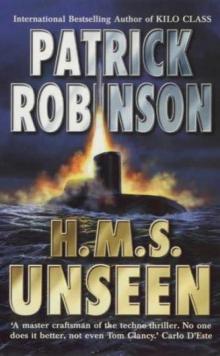 H.M.S. Unseen am-3
H.M.S. Unseen am-3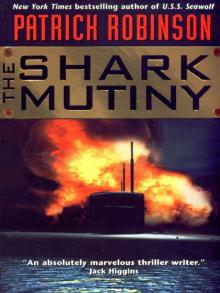 The Shark Mutiny (2001)
The Shark Mutiny (2001)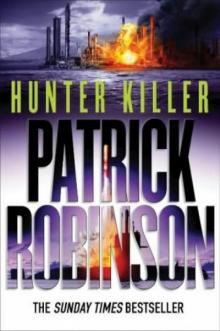 Hunter Killer am-8
Hunter Killer am-8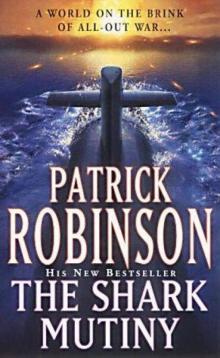 The Shark Mutiny am-5
The Shark Mutiny am-5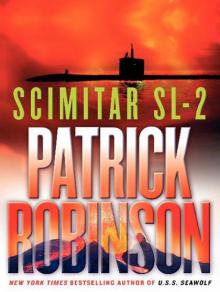 Scimitar SL-2
Scimitar SL-2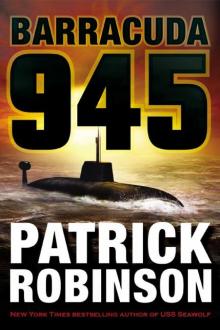 Barracuda 945 am-6
Barracuda 945 am-6 Hunter Killer
Hunter Killer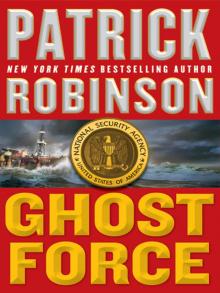 Ghost Force
Ghost Force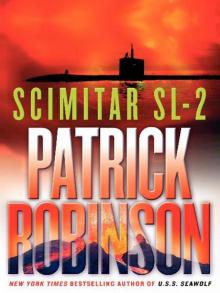 Scimitar SL-2 (2004)
Scimitar SL-2 (2004)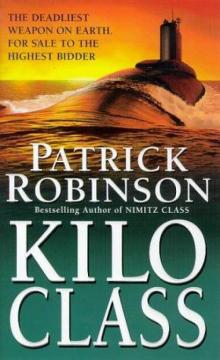 Kilo Class am-2
Kilo Class am-2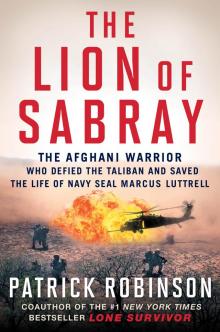 The Lion of Sabray
The Lion of Sabray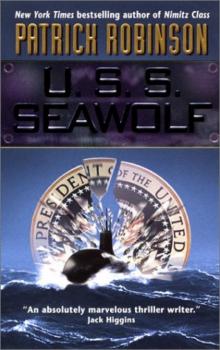 U.S.S. Seawolf am-4
U.S.S. Seawolf am-4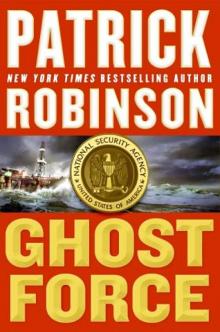 Ghost Force am-9
Ghost Force am-9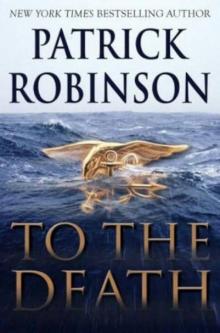 To the Death am-10
To the Death am-10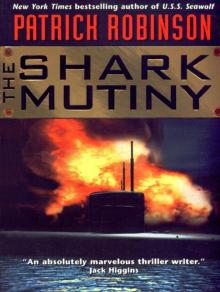 The Shark Mutiny
The Shark Mutiny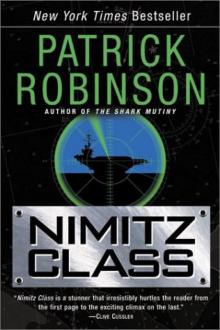 Nimitz Class am-1
Nimitz Class am-1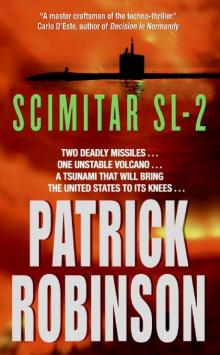 Scimitar SL-2 am-7
Scimitar SL-2 am-7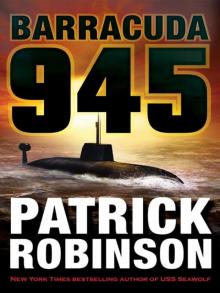 Barracuda 945
Barracuda 945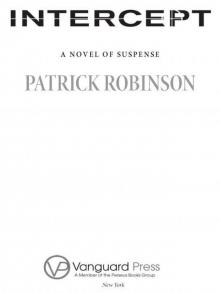 Intercept
Intercept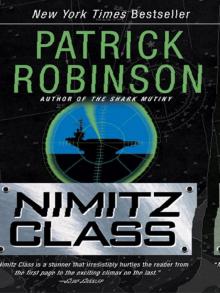 Nimitz Class (1997)
Nimitz Class (1997) Kilo Class
Kilo Class Kilo Class (1998)
Kilo Class (1998) Diamondhead
Diamondhead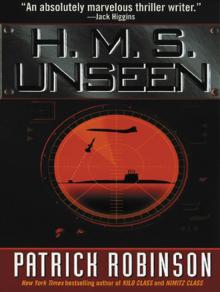 H.M.S. Unseen
H.M.S. Unseen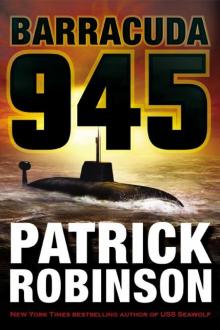 Barracuda 945 (2003)
Barracuda 945 (2003)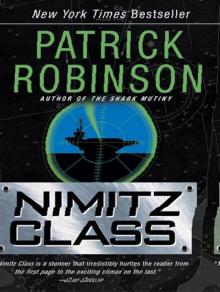 Nimitz Class
Nimitz Class The Delta Solution
The Delta Solution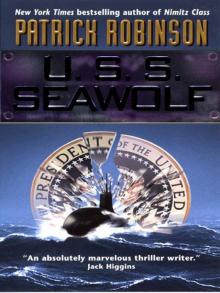 U.S.S. Seawolf
U.S.S. Seawolf